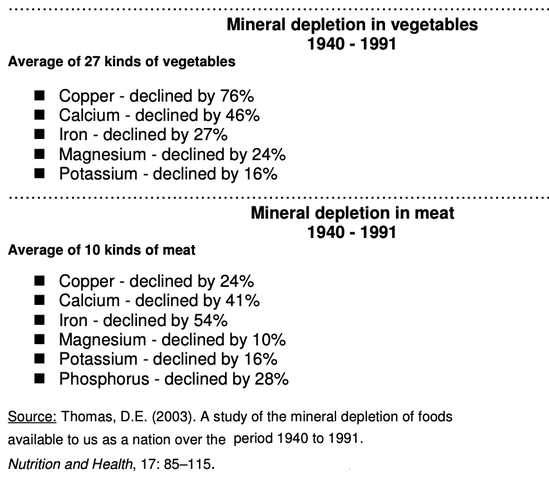Authored by Charles Hugh-Smith via oftwominds,
Maybe the question isn’t just “how much do you spend on food,” but “what value are you getting for what you spend in time and money for food?”
We all know food has become much more expensive, so it makes sense to pay attention to what we’re paying for in terms of value, nutrition and money.
One advantage of a low/sporadic self-employed income is it trains us to track expenses. Maintaining spreadsheets of income and expenses become second-nature because it’s required for tax filings.
It’s easier to cut spending than earn more net income, and the obvious way to save money is to manage expenses to be lower than net income. Like many others who chose self-employment at a young age, I’ve kept records of expenses for decades.
Out of curiosity, I prepared a spreadsheet of our total spending on food this year. This is all food, both food prepared at home and takeout and eating out. Alcohol and household supplies (detergent, etc.) are separate categories. (I’m mostly Irish-Scots, so Guinness has its own column.)
I have no idea what other households spend, or what’s considered “normal,” but we spend $40 per person per week, for 21 meals at home every week (no takeout or eating out), or about $2 per meal per person.
What works for us is pretty much the way most people lived a few generations ago:
1. We stick to real food, so no processed foods, chips, frozen pizzas, meals in a plastic bag, sugary drinks, sugary cold cereals, desserts, etc. Real food can be canned (tuna, sauerkraut, etc.) or frozen (edamame, etc.), but real food doesn’t have dozens of weird ingredients in fine print.
2. We eat a wide variety of foods prepared in a range of cuisines. We tend to eat what’s in season (i.e. what we’re harvesting from our yard and what’s on sale) and our default diet is mostly Asian staples: brown rice, tofu, natto, stir-fried vegetables with a bit of meat, etc. Other than the requirement that the food is real / unprocessed, our only other guideline is minimize oils, sugar and salt. We cook Italian, Thai, Indian, Chinese, French, Hawaiian, etc.
3. We have an urban yard with fruit trees and vegetable gardens. I’m attentive to the dirt and don’t use pesticides or herbicides but am otherwise a lazy gardener. There’s weeds and bugs. Sometimes what you harvest looks great, other times, not, so you trim off the bad bits.
Not everyone has the land for a garden. When I lived in an apartment, I signed up for a community garden plot. Going back a few generations, it was common to have a garden.
4. We don’t waste food. Again, this was once second nature to most people. Collectively, we toss out an astounding quantity of perfectly good food.
5. Preparing good food comes first, everything else comes second. According to surveys, many people complain that they don’t have time to prepare meals but they manage to find 4.5 to 8 hours a day for screentime on social media, TV, “news,” etc. We like to eat good food, so that’s our priority. Preparing food is enjoyable and rewarding. Watching deranging SOS (same old stuff)–it’s certainly addicting by design, but doesn’t offer much in the way of the joy and pleasure of preparing good food.
When you make your own pasta sauce from scratch, for example, you control the quality of the ingredients, and if you make a big pot, then you get the bonus of leftovers. Pasta sauce made from fresh tomatoes from a well-tended garden tastes so much better than the canned / bottled variety. It’s a revelation, like many other home-prepared foods: homemade pickles, etc.
6. Takeout and restaurant food / fast-food doesn’t appeal to us. It’s too rich, greasy, salty, sweet or overly processed for our tastes. It’s also pricey, and the taste/nutritional value simply isn’t there. Comfort food is what’s prepared in our kitchen.
7. We’re physically active. We’re full at every meal but remain lean. The “miracle health pill” doesn’t exist, and never will. An active lifestyle and diverse diet of real food and minimal oils, sugar and processed food is the “miracle.” Unfortunately, it’s not very profitable.
8. Real food tastes better than processed food, and it’s full of nutrients, unlike processed foods. Real food doesn’t derange your body and mind, and so handfuls of meds are not required to be healthy. Whatever fats and sugars that are in real food are good for us. There’s no need to obsess about endless restrictions. Just eat real food, the closer to the source the better. If you care about your soil and your animals, then your food will be healthy.
As for industrial-scale food, it isn’t what it used to be in terms of nutritional value. The way we grow food on an industrial scale has led to a decline in the nutrient quality of food in general:

Maybe the question isn’t just “how much do you spend on food,” but “what value are you getting for what you spend in time and money for food?” I have no idea if $40 per person per week is cheap or expensive in terms of money, but I know we’re getting value in terms of taste and nutrition, just like people did a few generations ago.
None of this is new; it’s the way most people lived until highly processed food and greasy, sugary junk food became profit centers. A greasy, sugary snack? Immensely profitable. A raw carrot or apple–not so much.

Is a 70% Consumption Economy Sustainable? (43:53 min).